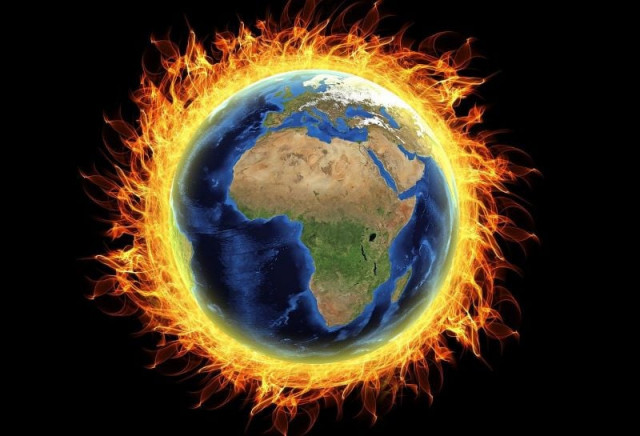July sets record as warmest month in Earth's history
Average global surface temperature in July was 1.21C (2.18F) above the 20th-century average says, NOAA

Earth experienced its warmest July on record, marking the 14th consecutive month of record-breaking global temperatures, according to a report released by US National Oceanic and Atmospheric Administration (NOAA) on Monday.
The average global surface temperature in July was 1.21C (2.18F) above the 20th-century average, the report said, making it the hottest July in NOAA's 175-year global record.
Africa, Europe, and Asia experienced their warmest July on record, while North America saw its second-warmest July, it said.
The global ocean temperature was the second warmest on record, ending a streak of 15 consecutive months of record-high temperatures, according to the report.
The global surface temperature was 1.28 C (2.30F) above the 20th-century average, making it the warmest year-to-date on record, it said, adding Africa, Europe, and South America each experienced their warmest year-to-date temperatures.
The report also highlighted below-average Northern Hemisphere snow cover extent and global sea ice extent, with Antarctic ice coverage ranking second smallest on record.
“July tropical activity was below average: Seven named storms developed across the globe in July, which was below the 1991–2020 average,” it said.
NOAA is a US scientific and regulatory agency charged with forecasting weather, monitoring oceanic and atmospheric conditions, charting the seas, conducting deep-sea exploration, and managing fishing and protection of marine mammals and endangered species in the US exclusive economic zone.



















COMMENTS
Comments are moderated and generally will be posted if they are on-topic and not abusive.
For more information, please see our Comments FAQ